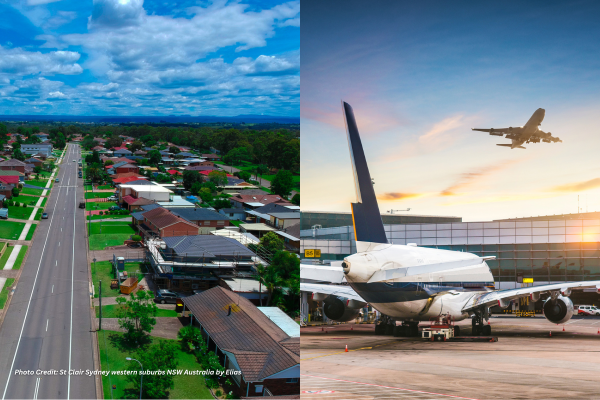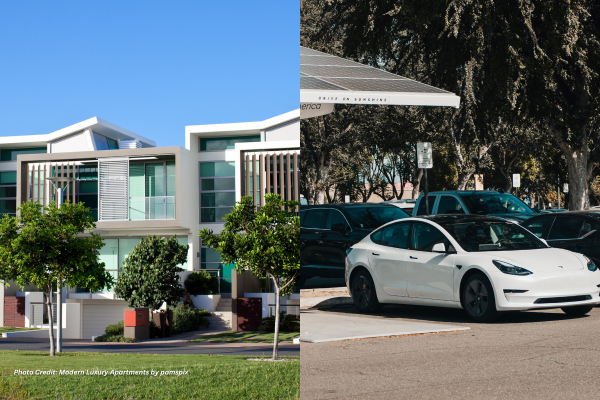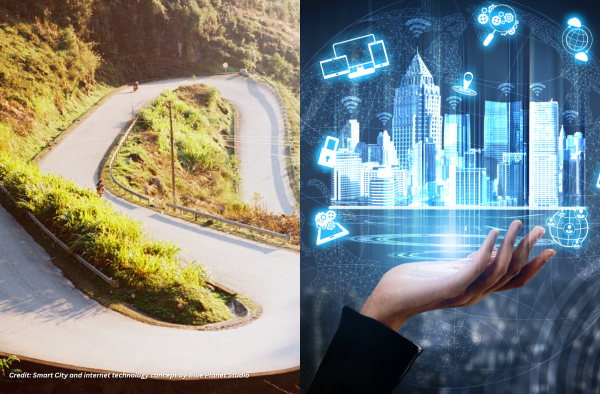An individual who believes in a 15-minute city theory has put forward a daring assertion regarding the installation of several U-turn bays on a road in Victoria, amidst ongoing discussions about urban planning practices worldwide. While cruising along Narre Warren North Road, an Australian podcaster shared a video on Twitter showcasing the ongoing upgrades on the road located 38km south-east of Melbourne.
The roadworks began in 2020 as part of the state government’s Big Build project, which included adding extra lanes, installing traffic lights, and making road safety improvements. The project is currently undergoing the finishing touches, such as asphalting, guardrail and signage installations, line markings, and vegetation work.
As part of the project, additional U-turn bays were constructed to provide safer and more convenient access to the streets connected to the main road. However, according to the conspiracy theorist, these turnaround lanes have been installed for a more ominous reason. They believe that more 15-minute or 20-minute cities will emerge in the future.
Referred to as smart cities, this concept revolves around urban development, ensuring that all necessary amenities are conveniently located within close proximity. This might encompass schools, shops, GP clinics, and even your workplace or office, all located within the same area.
To promote more sustainable, practical, and healthy living, Franco-Colombian urbanist Carlos Moreno came up with this concept. Important aspects of the theory involve maintaining crucial services nearby, fostering a sense of community unity, and promoting environmentally friendly city living.
Some sceptics remain unconvinced, drawing parallels between the theory and a Stalin-style conspiracy to maintain control over the population. Regarding the woman who recorded herself driving along Narre Warren North Road, she is of the opinion that the road upgrade project will serve as a significant checkpoint for smart cities.
“This used to be a country road. Not only are they building wires and towers, but they’re also interestingly putting in three or four U-turn opportunities,” she explained in the video.
“I guess that’s because you’ll get a warning—you’re about to leave your 20-minute city, your district, and your zone—and it’s your last chance to turn back obviously before the fines start.”
While driving along, the woman notices three pillars with strange blue lights in the middle of the road, surrounded by parked taxis.
“Up here to the right, you’ll see three bollards… I think this right here is the checkpoint,” she claims in the video.
“There’s now all of these opportunities to pull a U-turn and go back the way you came.
“In the future, going out to the countryside is not something they’re going to allow you to do without you handing over your money.”
The tweet, with more than 1.3 million views and 692 likes, has sparked a lively discussion about the urban planning concept online, with some suggesting the woman’s ideas are excessive.
“This is ridiculous. U-turns, or access for emergency vehicles? Or both? Forget something and need to go back home? A U-turn is handy. This is not a nefarious thing,” one person tweeted.
“15-minute cities have been around for ages and have nothing to do with climate change lockdowns. It’s literally about ease of access and reducing dependency on cars,” a second person said.
“No one is preventing you from going further away in your car.”
A third comment read: “The wires reduce accidents. The breaks in the wire provide access points for emergency vehicles to turn.
“These safety measures can be found on roads around Australia.”
Meanwhile, a man proposed that the promotion of electric vehicles (EVs) instead of gasoline cars might be another way to limit people’s freedom.
“I’m thinking this is one of the major reasons they want EVs versus gas vehicles—fewer and less range!” he said.
Online discussions are heating up following large gatherings worldwide, with sceptics voicing their concerns about the new concept that has been implemented in 16 cities internationally, such as Paris and Shanghai. Edmonton, Canada, attempted to implement the idea but faced opposition from its residents.
“You will spend 90 percent of your life in this 15-minute area as they are monitoring your carbon footprint,” a flyer circulating warned.
On the other hand, supporters of the theory have strongly criticised its detractors, such as registered nurse Christopher Patterson and national radio broadcaster Triple J Hack.
“There are a lot of noted intellectuals on TikTok telling me I should be suspicious of convenience,” Triple J Hack reporter Shalailah Medhora said in a radio package last month.
Patterson, a lecturer at the University of Wollongong, highlighted the various health benefits associated with a theory that some sceptics may be disregarding.
“The main benefit is giving people back their freedom and time,” Patterson said.
“The time you get back, you could put into your health or sit in green spaces to reconnect with your community and family.”
Justin Lavadia is a content producer and editor at Public Spectrum with a diverse writing background spanning various niches and formats. With a wealth of experience, he brings clarity and concise communication to digital content. His expertise lies in crafting engaging content and delivering impactful narratives that resonate with readers.

























































